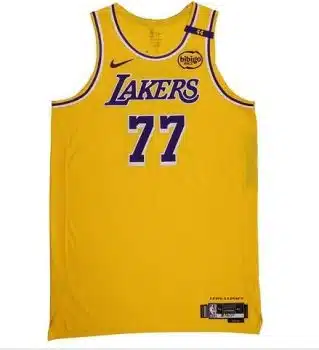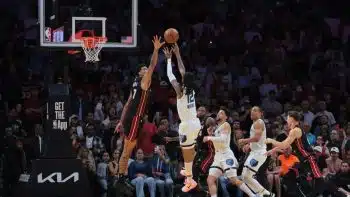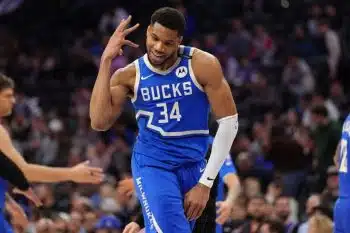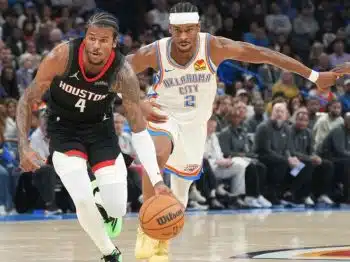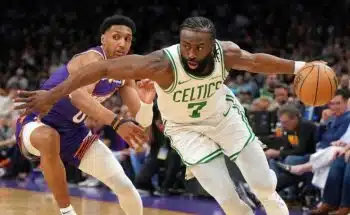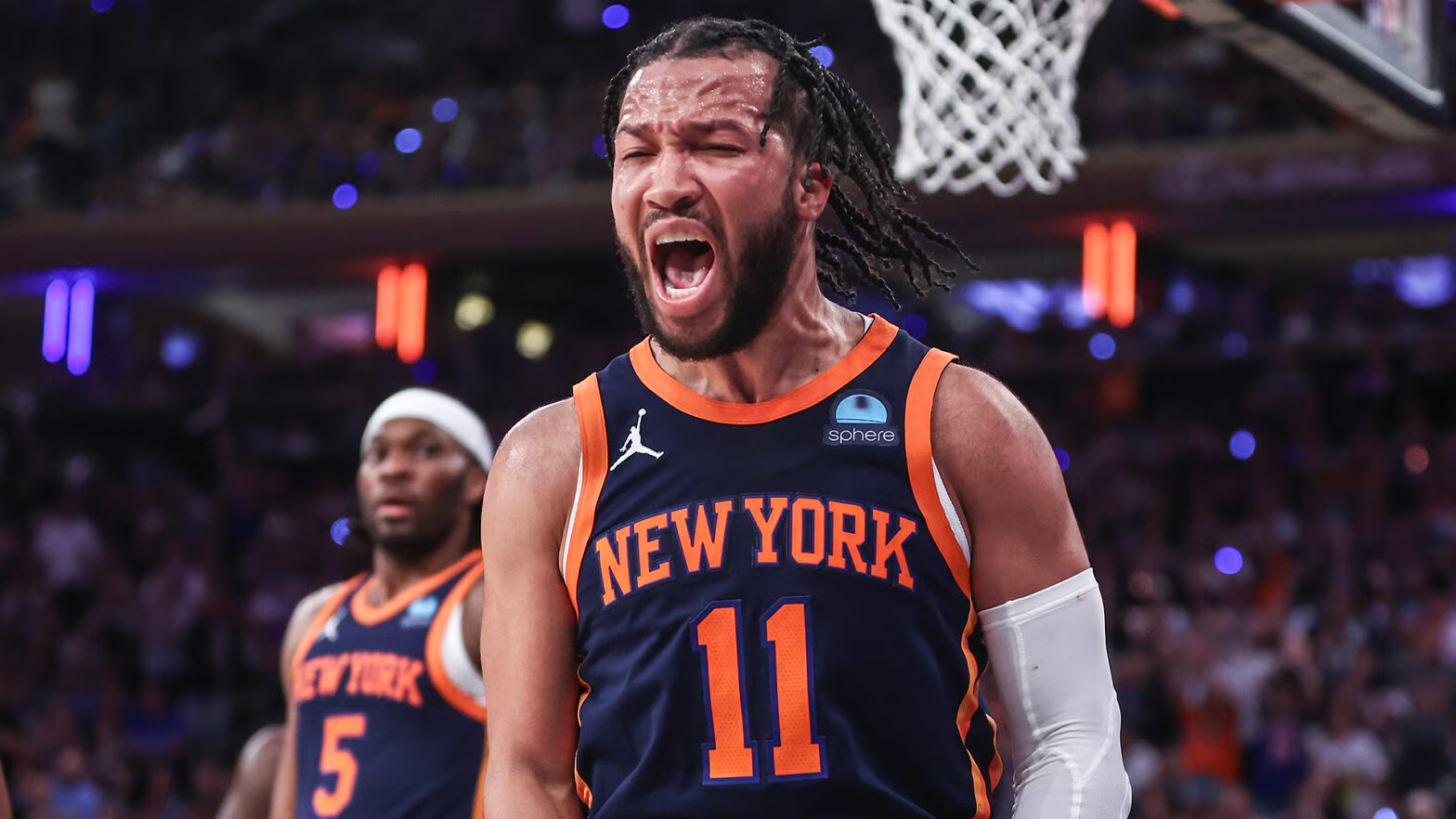NBA
Exclusive Ronny Turiaf Interview: Wembanyama is “1 of 1”, Gonzaga has what it takes to win the national title, France can compete with USA Basketball
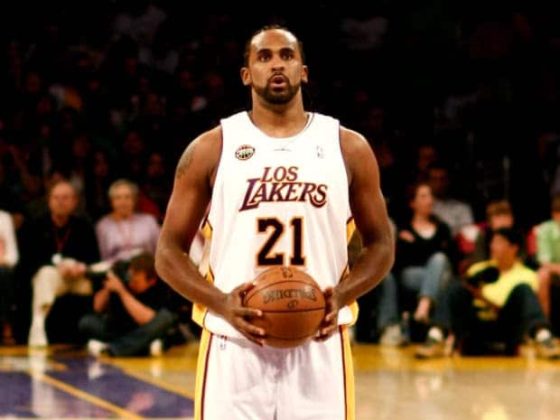
In an exclusive interview, former NBA Champion Ronny Turiaf told Basketball Insiders that potential No.1 NBA Draft pick Victor Wembanyama has the intangibles to become a superstar.
“He’s 1 of 1,” Turiaf said in the interview, “I’m not even talking about his size and the fact that he blocks shots and all that stuff but when I watch the intangibles that he brings to the game, that excites me the most about him, for sure.”
Turiaf also spoke about the state of France basketball, the Lakers playoff hopes, Gonzaga’s chances of winning a national championship, and the secret to luring away head coach Mark Few from Spokane, Washington.
If you would like to use any quotes, you must credit and link to https://www.basketballinsiders.org/ as the original source.

Check out the highlights from the interview below.
- Wembayama is for real, has the intangibles to become a star — “He’s 1 of 1”
- On Lakers playoff hopes: “Anytime you have LeBron James on your team, you have a chance to win.”
- France is ready to compete with USA Basketball — “The gap is getting closer and closer”
- Gonzaga has what it takes to win the national title
- The secret to luring Mark Few away from Gonzaga: fly fishing
Full Transcript
Question: A lot of people don’t know that you had heart surgery before your rookie year in the NBA. What did you think of the DaMar Hamlin situation in the NFL? Did you have a chance to see what happened?
Ronny Turiaf: I actually did not see what happened, I have no desire to see what happened. The situation was very unfortunate. I wish him nothing but the best, a speedy recovery. I hope he’s about to resume his career and have fun on the field, the same he used to prior to the incident.
Q: Are there more precautions that need to take place in pro sports to prevent incidents of cardiac arrest?
RT: Those incidents are so random. There is nothing that I think that can be done, other than the step that’s being done already. We are being screened for cardiac situations prior to signing contracts. The same way, my contract was voided after discovering the aortic issues that I had. So, I think those sports leagues are doing everything that they can and sometimes, unfortunately it happens, I’m glad that he’s still alive.
Q: What do you think of the Lakers season so far and can Lebron lead L.A back to the playoffs?
RT: Anytime you have Lebron James on your team, you have a chance to win. I truly believe that, so I’m excited about him.
Q: What are some of the biggest challenges that come with playing basketball with star caliber players like LeBron as your teammate?
RT: I actually think it’s funny the way you worded that question. When you say, what are some of the challenges? I think that it’s an opportunity. What are some of the things that you can do to enjoy playing with those guys?
When you’re playing with a significant player of that stature, your life becomes easier. Lebron is someone that can make everybody’s life easier around him. As long as you respect the spot, you know what you’re supposed to do, deliver on the tangible that you’re able to do, you’ll have a good time. I think it’s interesting that you worded the question with an obstacle.
Q: I was trying to infer that maybe there were some challenges working with someone of that caliber but like you said, he’s a great player, he makes his teammates around them better.
RT: Most definitely. When I think of challenges, it’s really simple. Be where you’re supposed to be, know the sets. To me, it’s self explanatory and maybe because I was fortunate to play with plenty of those players. When you’re supposed to do what you’re supposed to do and you follow the rules that the coaching staff puts in place, I think it’s pretty easy and it’s pretty fun.
Q: What players, if any, should the Lakers trade for in order to become a title contender?
RT: I wish I could help you with that. To my knowledge, I don’t have a GM title, I’m not sure what they have. I’m not sure what would be the best for them. It’s always interesting with in-season trades, sometimes it works for the best, sometimes it doesn’t work out the same way. But it seems like they are trying to turn things around, so maybe they have everything from within.
Q: The Miami Heat are 8-3 in their last 11 games. What happens in the locker room when a veteran team starts to figure things out and turn things around?
RT: When I played for Miami, coach Spoelstra used the sentence, “weather the storm”. Miami, they call it the Miami Heat DNA, they never get really too high or too low. They focus on working, and just working, and working, and working, and working. I know exactly what’s going on in the locker room, they are just focusing on just doing whatever they can do on a daily basis and that’s really what they are focusing on. It doesn’t surprise me that they are turning things around.
Q: You won a title in Miami with the Heat. Do you think the Heat can contend for an NBA title?
RT: I think the Miami Heat can contend for the NBA title. They have the pieces around and we saw that they contend two years ago during the bubble. So, it’s just the matter of picking the right steam around the right time. I think when it’s playoff time, when you have players like Jimmy Butler, Tyler Herro, and Bam, you have the pieces around that you feel confident in a seven game series, where you’re going to have to beat them four times. That’s not an easy task.
Q: You played for 7 different NBA franchises. What is the difference between an organization with a winning culture and a rebuilding team?
RT: That’s a great question. Thanks for asking me that. I’ve been really thinking about that as I reflect on my career. The fine line between winning and losing is very thin. I think the winning organization usually has a clear understanding and a clear path about what they are trying to accomplish and what they are willing to sacrifice to be able to do so.
However in a rebuilding team, the task and the goal is different. It’s a rebuild. I think one is not better than the other because at some point every franchise has to go through a rebuilding phase. I think it’s just a matter of having the clear obstacle and doing what is necessary to get there.
Q: You played with a lot of great players during your NBA career. You had the chance to play with Kobe on the Lakers, LeBron on the Heat, and spent some time with Steph Curry with the Golden State Warriors. What sets those players apart from each other and also from other players in the league?
RT: Let’s not forget, Carmelo Anthony in New York, John Wall in Washington, Kevin Love in Minnesota. Those guys were my brothers. Once you go through battle with those guys, you fight for your teammates.
I think what sets those guys apart is the level of dedication that they each have to their craft. The level of burning desire to win a basketball game and to take everybody with them. They all lead in very different ways, they are very dedicated. I feel very fortunate to have had a chance to go to “battle” with them and have success with some and less with others.
Q: Do you spend time watching Gonzaga still? Even though you’ve been removed from them for quite some time?
RT: Once you go to school, to university, you always keep track of your team. That’s part of going to college in the US. I keep track of them, at the moment I’m in Europe. You know, that I’m not getting up at 2 am to watch some basketball games, I can tell you that. However, I check the box score. I am very excited for them and just seeing them climb the steps towards the ultimate goal, which is to win the NCAA Championship. Hopefully they will get there.
Q: Gonzaga lost three of its first 5 games but they’ve since won 11 in a row since. Do you think they have what it takes to get back to the National Title Game?
RT: Definitely think they have what it takes. Once again it comes down to matchup, are they playing the right way, playing in sync at the right time. I think it’s really interesting, they’ve played some of the hardest preseason conference schedules, out of conference schedule.
It’s normal to lose some games when you’re still trying to figure out, incorporating transfers and new guys just stepping in. We are seeing the pieces right now are fitting wherever they are supposed be at and they are able to close out the game. They are able to fight all the way to the end, I’m proud of them.
Q: Where does Drew Timme, a senior and one of the better Gonzaga players maybe ever. Where do you think he ranks on the list of the best players ever to wear a Gonzaga uniform?
RT: I think he’s definitely up there. The body of work that he’s landed at Gonzaga is really amazing. I’m happy for him, the way he carries himself in a very happy go lucky way, making everyone around happy and smiling and all that stuff is very fun. They can put him way up there but I think there’s one or two or three guys up there. It’ll be hard to top.
Q: With the college sports landscape constantly changing, do you think it’s time for Gonzaga to move to a more high profile basketball conference? I know there’s been a lot of shifts in the conferences in the NCAA.
RT: Yeah, that’s a great question. I think it’s definitely up there for conversation, we saw that they’ve had conversation with the Big 12 and so forth. We’ll see what happens, I’m so far removed from what is best for college basketball or the university and all of that. I usually tell people, do whatever you think is necessary to get to the next level in a way that impacts and brings positivity. Whatever they are going to do? I don’t know.
Q: No. 2 overall pick Chet Holmgren got injured before he had a chance to play his first NBA game. You also had to miss time in your rookie season. How hard is it to get up to speed in the NBA after missing significant time as a rookie?
RT: It really depends on the type of injury that you have. Obviously, I don’t know what it’s like to have an injury that he has in his foot or whatever. But I think that, I can definitely tell you that the first couple of games that you play or the practices, everything goes some much faster than you’re used to. The good thing about it because you play Monday, Friday and Sunday, you have a chance to catch up fairly fast.
I think it’s about how do you get back to having the fine details and the rhythm at optimum level. It usually depends but I think for myself after I came back from open heart surgery, I would say toward the end of my rookie season that’s when I felt fairly comfortable. Heading into my second season, in training camp, that’s when I was at optimum level.
Q: What do you think of the job that Mark Few has done recruiting talent to the program?
RT: It’s been very fun watching what Mark Few was able to do with recruiting. Which started by having blue collar kids that stayed four years, we graduated to kids leaving early and now we are getting five stars. I think it shows the growth of the program and I’m excited to see where it goes.
Q: Which former Bulldogs stand to make the biggest impact in the NBA?
RT: It’s a loaded question. We’ve had our fair share of NBA players that went to GU, we’ve had guys that are dominating the way Domantas Sabonis is doing right now, we have Rui (Hachimura) that is making a great impact in Washington, Cory Kispert, Jalen Suggs. I feel like it’s fun to watch those guys accomplishing their dreams and stuff like that. I’m just happy to see those guys that went to GU in the NBA having success. I’m not the guy to be like “this guy has the better impact” or whatever, I’m just super proud. You feel super happy to see guys that went to the same university as you having success in the NBA.
Q: What are some of the qualities that Mark Few instilled that have helped turn Gonzaga from a mid major into a national powerhouse?
RT: What I am most impressed and inspired by is coach Few’s ability to take the program from one place and drive it to go where it is right now. His ability to put people in a situation to succeed, what I mean by that is empowering other people to be autonomous. People can just do and trust the people to do whatever is necessary to help the program and not put limits on what these specific assistants or specific player development coaches do to help the program. It’s a testament to a great leader to be able to do that, to put people in the right places and allow them to be great. Not everybody is able to do that and not micromanage the people. I think it’s amazing.
Q: What do you think about his (Mark Few) commitment to the program and the folks at Gonzaga?
RT: I think it’s beautiful in this day and age to see someone to stay in one spot for so long when he could have gone to green pastures. I think I would take the route to have fun with him and maybe if one university would have had some great rivers and all that stuff for him to go fly fishing. Maybe he would have left because he loves fly fishing so much. That’s the commitment to fly fishing that’s kept him at GU for so long. Everyone’s going to be mad at me because I told them the secret of how to get Mark Few.
Q: In the evolving landscape of college sports, do you see Gonzaga ever leaving the West Coast Conference?
RT: I wouldn’t be surprised if they did and I wouldn’t be surprised if they stayed. I think that there’s so much at play and stake to be able to leave conferences and stuff like that. We’ve seen that with the PAC 10, PAC 12 and so forth. It sounds complicated but it has to make sense for people to do it. So, I would see what the university has in store. I’m not really sure to be honest.
Q: What is your best Mark Few story?
RT: That’s a great question. I would say my best Mark Few story would be after I played and some of the few times that I was able to come back. When I saw the look on his face because I usually surprise them whenever I showed up in Spokane, the way he looks at me and goes for the hug, I think that’s the best Mark Few stories. The love that he has for his players, how he’s always trying to embrace them whenever they show up to the arena. He’s always so happy to see the guys come back around, so it’s cool to see.
Q: What do you think of the continued expansion of the NCAA Tournament? I think they are moving it up to 90 teams now and will it ultimately devalue what it means to make it to the Big Dance?
RT: To be completely transparent, I was unaware of that. However, I think it could be a fun opportunity to be able to expand the field and also give a chance to teams that have never made it to be able to make it. Why not, we all love the story of the underdog, that’s what March Madness is based about, the underdogs and The Final Four. So why not expand the field and have more games. Maybe because you have more games, more people will be interested in watching those types of things and activating those markets in those different areas could be a fun thing to do.
Q: What are your favorite memories from the NCAA Tournament from your playing days?
RT: I don’t have too many favorite memories because we lost in the second round every single time. But I would say the excitement of Selection Sunday, that little nervousness and excitement that you have sitting in a chair. You’re putting in so much work throughout the year, your body is aching or whatever it may be but on that Sunday the real, real battle starts. The excitement of seeing who do we got, we’re ready to go, let’s get it. I think for me, it was that. That little bit of anxiousness and excitement before going to play.
Q: The NBA has been talking about incorporating a mid-season tournament to capture the spirit of March Madness. What do you think of a similar tournament coming to the NBA? What do you think it would bring to the league?
RT: That’s a great question, I’m not really sure about the technical term to implement those kinds of in-season tournaments. But I think if I was playing, I’d be excited to have something within the season to get the juices flowing a little bit some more. It’ll be interesting to see if they did it, how they’ll do it and most importantly when because you have the Christmas games, New Years and in between the All Star game after that. When would it be? Would it be in January or so, I’m also interested in when they would do that.
Q: NBA fans have been paying a lot more attention to European basketball over the last few years. What are the top basketball leagues in Europe?
RT: The top basketball leagues now are Spain, Italy, France, Greece and maybe Serbia a little bit. I think that Spain, Italy and Greece would be the top three.
Q: Are there any EuroLeague players that NBA fans should know about?
RT: I wouldn’t know who to pick but I would represent my hometown of Martinique, the homie, the little brother called Mathias Lessort. He plays for Partizan, Belgrade, he’s from Martinique and he got drafted by the Philadelphia 76ers a couple of years back. That’s who I’m going to pick, he plays in the Euro League or Euro Cup and that’s the homie. I’m going to represent Martinqiue.
Q: Several EuroLeague players like Luka and others have been able to make a successful transition to the NBA. What about the EuroLeague helps prepare prospects for life in the NBA?
RT: The Euro League allows players to play at a high level, twice a week. I think it’s almost the NBA before getting into the NBA. The level of play is the champions from each league all over Europe that play against each other, so the quality of players, the demand, the environment when you play in front of 10,000 people going crazy. Sometimes way crazier than the fans in the NBA, it’s almost like a preparation for the Big Dance. I think that’s what allows those guys to make a big jump faster. It’s also the fact that international players are becoming better, better and better, so that’s really it.
Q: Who are some of the top European basketball prospects that could make the jump to the NBA?
RT: I think that everyone is talking about is (Victor) Wembanyama, so let’s just focus on him.
Q: You won a U18 gold medal with France while playing alongside few NBA stars Tony Parker, Mikael Pietrus, and Boris Diaw. What do you think of the next generation of French Basketball stars?
RT: Most definitely, we’ve been putting at least one french player in the NBA draft for the last 10+ years. It’s been fun to watch but it started with Tariq Abdul-Wahad, Jérôme Moïso and all those guys prior to us. Then we took the baton, we took it a little bit further. Now those guys are taking the baton and taking it a little bit further. I think it’s a beautiful evolution of the skill sets, contracts, the way the game is being played, players being able to do different things at an earlier age. So it’s really fun to watch the new generation taking it further and I’m really excited about the generation after that and who it’s going to be after that. France basketball is in great hands at the moment.
Q: Do you think that the France Basketball team is ready to compete with the USA on the world stage?
RT: I mean, if we looked at the last final of the Olympics it was France versus America. We are definitely competing and the gap is getting closer and closer. I think it’s really good for the game of basketball, it shows that those games are highly, highly competitive. It shows that great basketball is being played all over the world. We know that the US has been a dominating force for as long as I was alive, if not more. But we see that those games are being closely decided right now. So, let’s see what happens in the future.
Q: Who are the Top-5 NBA Players from France?
RT: I would say at the point guard position, I would get Tony Parker. At the 2, I would get Evan Fournier. At the 3, I would put Boris Diaw. At the 4, I would put Joakim Noah and at the 5, I would put Rudy Gobert.
Q: You came from France to the US to play basketball. What are some of the obstacles that Wembanyama will face when coming to play basketball in a new country?
RT: I think that the challenge that Victor is going to face will be the speed of the game, repetition of the game, I don’t think he’s used to playing four times a week. Also outside the court, the culture. America is not France, the way people behave is different from what I’m thinking he’s used to. So, those are the first things that jump into my mind about the first couple of obstacles that he’ll face. He already speaks english very well, he’s already surrounded by a great team, so I think those are the things.
Q: Victor Wembanyama has a unique skill set for a player his size. What is the biggest thing that he has to work on to fulfill his potential at the NBA level?
RT: I think the only thing is to get even tighter on his shot, to be able to be an even greater shooter, a knockdown shooter at his size. Obviously, he’s still a teenager, with the process of the human body, we cannot speed too much. I think naturally, he’s going to grow into a man because now he’s a teenager. I think that’s going to bring a different side of him, to be even stronger and more balanced, the ability to deal with the physical demands of being an NBA player and star as someone that logs heavy minutes.
Q: What sets Victor Wembanyama apart from other prospects? Is the hype real?
RT: Well the hype cannot be real because the hype is everything that is around it. But I can tell you that the way Victor plays basketball is definitely real. This young man plays basketball the right way, he makes the right decision over 9 times out of 10. He is able to be a great teammate, be there for his teammates and be very encouraging when his teammates miss shots and so on. He’s definitely someone that I’ve watched play two or three times, he’s one of one. He’s definitely one of one, I’m not even talking about his size or the fact he can block shots and all that stuff but when I saw the intangible that he brings to the game, that’s what excites me the most about him.
Q: How can a young player manage the expectations that come along with the kind of hype Wembanyama has received over the last 2 years?
RT: From what I’ve read and this is just from the outside looking in, I don’t have any kind of inside source or information. But from what I’ve read, he wants those expectations. I think his burning desire to want to do great things is not being affected by what’s happening outside his world. When we compare, we’ve mentioned earlier the great ones I’ve played with, that’s a similar trait. They are focusing from within to be able to pour out something that they actually want to put into the world. He wants to have that responsibility, he is dictating his career according to that. I think the outside noise is not impacting him, he just wants to play basketball at a high level.
Q: Another French basketball player that was highly drafted, Killian Hayes, was starting to earn the “bust” label from Pistons’ fans but he has turned things around in Detroit as well. What do you think of his development as a player and where do you think he could go in the future?
RT: I think it’s always interesting to hear the “bust” label, especially for a kid that is 19 or 20. We live in this culture of instant gratification, where we want people to be successful right away. We got used to people figuring out everything so fast, every single time. I think for him, it’s the prime example of just being patient, just being patient, and dealing with the growing pains it takes to be a great player. Very few players have been able to come in right away and have an immediate impact and have never looked back since. If you look at Chauncey Billups, or whomever, it always takes time. I always compare him to Chauncey Billups because I’ve had conversations with Chancey Billups, talking to me about the struggle he faced when he was playing for the Boston Celtics and how that was necessary for him to become the Finals MVP that he was. That’s what I see in Killian, he was trying to figure out “how can I have success”. You have to try things to see what works and what doesn’t. I’m excited for him, I’m excited to see him play on Thursday and I’m also very excited for his future because it seems like he’s found himself a niche, where he’s able to perform at a high level consistently.
Q: Do International Basketball players need more time to adjust to the way that the NBA game is played?
RT: I respectfully would like to say, I do not agree with that statement in regards to that, it really depends on the player. We saw Tony Parker for example after four games he was the starter for the San Antonio Spurs and he played 20 years in the NBA. It really depends on the type of player, the situation that they get drafted in, and sometimes it takes time for some people and others it doesn’t. I think it’s overall adjusting to the roles, the way it’s star centric instead of team centric, takes some time. But for somebody like Luka for example, he went from team centric, now he was plugged into a star centric and exploded in a way that nobody could have expected. I think it really depends on the players and the situations that they get into.
Q: Who are your Top-5 best teammates of all-time?
RT: Top-5 NBA teammates of all time, I will start at point guard position, Steph Curry at the 1, Kobe Bryant at the 2, at the 3 I would put Lebron James, at the 4 I’ll put Chris Bosh and at the 5 I would put myself.
Q: Who are the 5 best players in Gonzaga basketball history?
RT: Top 5 basketball players ever at GU will be starting point guard, John Stockton, at the 2, I would put Adam Morrison, at the 3 I would put Rui Hachimura, at the 4 Kelly Olynyk, at the 5 I would Sabonis.
Q: Who is the best active French NBA player?
RT: I would say it’s between Rudy Gobert and Evan Fournier.
Q: What is your favorite NBA memory?
RT: My favorite NBA memory by far is February 8th, 2006. It was my first NBA game, I played 52 seconds. I get into the locker room and everybody’s waiting for me in the locker room, throwing gatorade at me, throwing baby powder, throwing everything at me and everybody just jumping around me and celebrating the fact that I beat out my open heart surgery. So to me, it’s my favorite.
